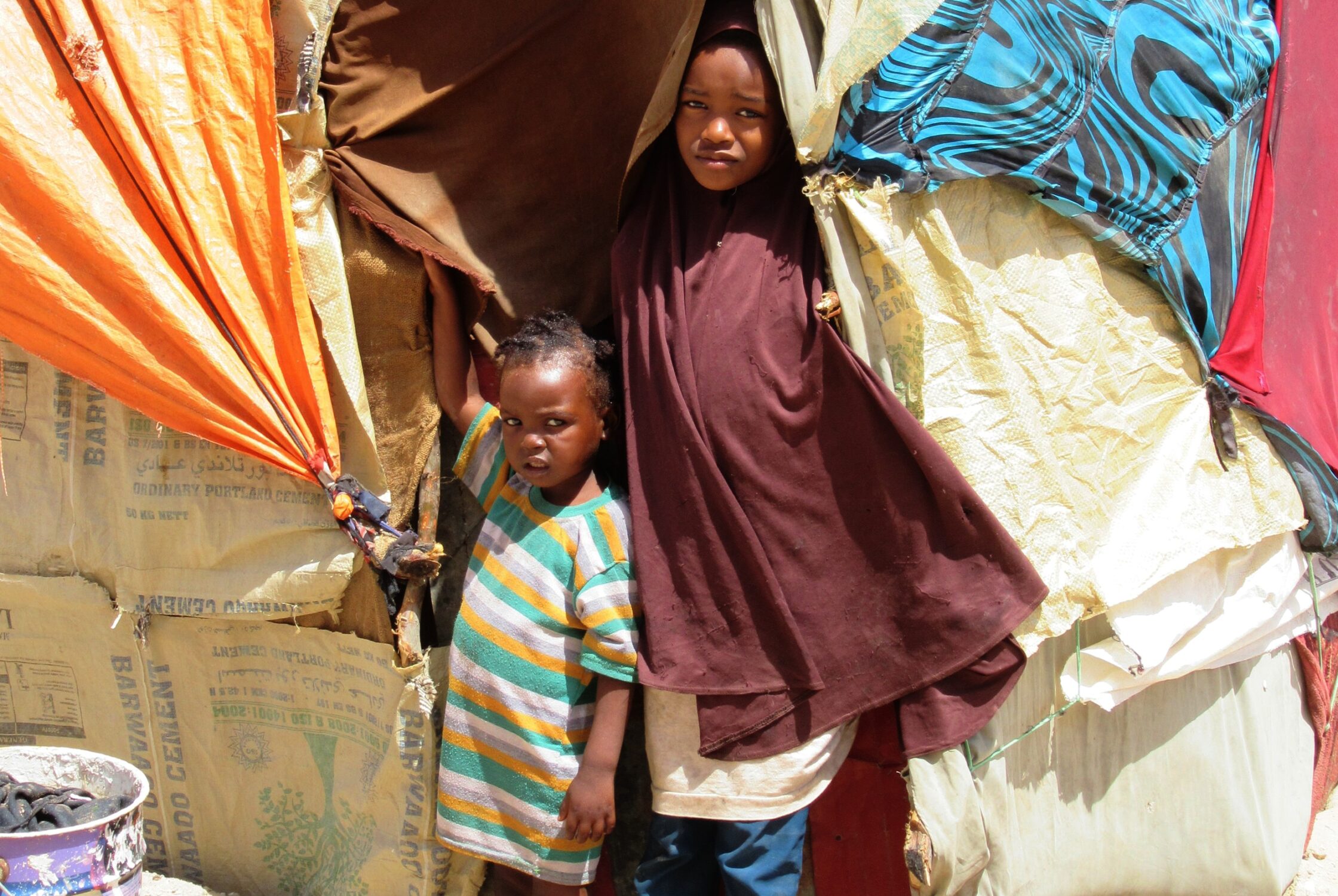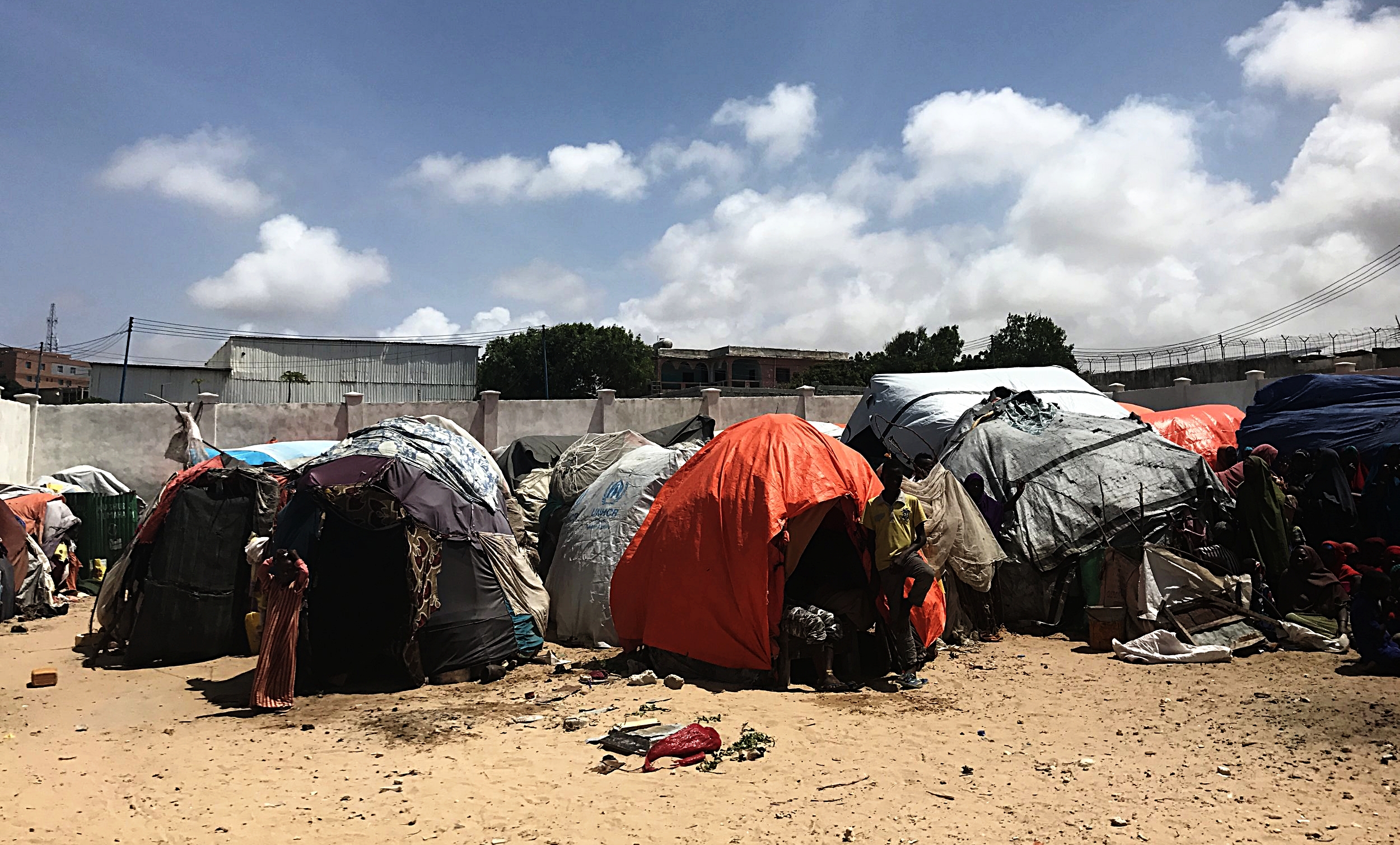On the Edge of Disaster: Somalis Forced to Flee Drought and Near Famine Conditions

At present, Somalia remains in the chokehold of a severe, protracted drought. The Somali government, the United Nations, and donor governments, including the United States, United Kingdom, and the European Union, deserve credit for acting early to address the risk of famine and avoiding a wide-scale loss of life. But the failure of the most recent rains and a third consecutive season of below normal harvest and pasture have prolonged the crisis and left significant numbers of Somalis destitute. Worse yet, getting aid to many of the most affected areas has been a challenge due to the presence of Al-Shabaab and other non-state militant groups which often hinder or prevent aid delivery.
We will not go back. There is nothing to go back to.
Displaced Person in Baidoa
The rains failed year after year. We sold our
Displaced Person from Qoryole
animals and now we have nothing.
More than 800,000 people have been forced to flee in order to reach lifesaving assistance. Many of these internally displaced persons (IDPs) have gone to urban centers that are under the control of the government and African Union peacekeeping forces. In cities like Mogadishu and Baidoa, the humanitarian community is struggling to keep pace with thousands of new arrivals in a challenging operating environment. Many of the displaced are currently living in squalid conditions where they not only lack adequate food, nutrition, water, shelter, and healthcare, but also are exposed to risks that threaten their health and physical safety, including sexual and gender-based violence (GBV). The response requires improved coordination, especially at the regional level, in order to address gaps in services and the worsening conditions. Of particular concern has been lackluster response by the UN Refugee Agency (UNHCR) to the serious and well-known protection risks IDPs face, given its role as leader of the protection cluster.
Moreover, given the persistence of the drought, sufficient additional funding is needed to meet the urgent humanitarian needs of IDPs, at least until the end of the year and to assist affected communities until the next harvest. Without additional funds – along with a rapid scale-up of a more coordinated, better informed, and timelier delivery of protection and assistance – the risk of famine will continue to loom.
Refugees International Senior Advocate Mark Yarnell and Climate Displacement Program Manager Alice Thomas traveled to Somalia in July 2017. They are the authors of this report.
